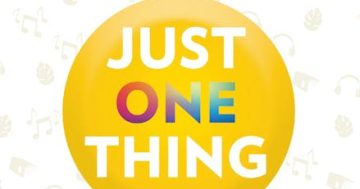Ashley Jones* says knowing what motivates you can come in handy when it’s time to make a career change or seek a promotion.
 Do you know what drives you?
Do you know what drives you?
What is the thing that makes you want to do what you do?
Motivation is what gives you the urge to get up and get to work on a goal, a dream, or even just do your job.
But do you know what motivates you?
Other people’s motivations may be totally different from yours, and you may have multiple motivating factors, but ultimately you do have something deep inside that lights a spark that ignites your flame and pushes you to do what you do.
Knowing what motivates you can come in handy when it’s time to make a career change, interview for a new job, or get promoted.
What is motivation?
Tiffany Lee, a communication specialist, and body language expert who specialises in helping professionals find confidence in the workplace, says that motivation can be internal or external.
“Some people are motivated by their wants and desires (money, houses, etc.), others are motivated by being able to help their families, help the community and the world,” she says.
“One of the most important things motivation can help with is sticking with something when times are harder or things don’t go as planned.”
Motivation can come in multiple forms based on the needs of self-fulfilment, financial freedom, family stability, and health.
Because different people are motivated by different needs, motivation varies from person to person.
This also explains why some people have service-oriented jobs and others have the skill or task-driven jobs, as well as why some people are driven to take more risks with their jobs than others.
It is all dependent on their motivating factors.
Why do you need to know what motivates you?
Have you ever wanted to quit your job or stop searching for one when you hit a roadblock or rough patch?
Knowing your motivation could help prevent this feeling, according to Paula Fendley, a life coach and educational consultant.
“Identifying what motivates an individual is essential because clarifying the ‘why’ behind what one wants to achieve can help the individual stay focused and persevere even when things get challenging,” she says.
Fendley says that while having a career coach can help, “self-motivation is the ultimate goal”.
You have to learn what works for you in terms of goal-setting, organisation, time-management and even strategies for taking breaks in order to increase productivity.
“Raising one’s awareness and gaining clarity on what motivates an individual adds to their personal ‘toolbox’ and can accelerate their growth and success,” Fendley says.
Find what motivates you
To find what motivates you, you have to do some self-examination and get honest about how you’ve got to where you are and how you will get to where you want to go next.
“When considering motivators, it is helpful for people to think of times when they were excited and motivated to accomplish tasks,” Fendley says.
“Thinking about all aspects of that high engagement can help inform the type of work one is motivated to do.”
Make a list of these instances and then reflect on what drove you to that feeling of excitement or accomplishment.
The “why” behind that feeling is the answer to what motivates you.
You can also ask yourself questions and let your answers guide you to find what motivates you.
Some questions that Lee and Fendley recommend asking yourself include:
- Who do I want to be in five to 10 years and how does that person act?
- If money wasn’t an issue, who would I help and how?
- What would I love to do?
- How would I like to make an impact?
- What jobs align with my values?
- Who do I need to be to be in order to be my best self and live the life I desire?
Answering these questions either aloud with a career coach or in writing so that you can examine your answers can help you determine what it is that motivates you.
This can ultimately lead to doing work that is aligned with your personal motivations.
“Living an inspired life in line with one’s beliefs and values, and when one is engaged in work that is purposeful and meaningful, motivation naturally occurs,” Fendley says.
Use what motivates you to your advantage
Once you find what motivates you, you can use it to your advantage to secure your ideal job and lead a more fulfilled life.
One way Fendley says this can happen is by “using personality and strengths assessments along with interest inventories,” which can be found online or with the help of a career coach.
“Identifying one’s gifts and talents along with the desired salary, preferred work tasks, optimal working environment and one’s purpose in life are all key motivators and finding the right match will significantly increase job satisfaction,” she says.
Once you know what motivates you, you’ll also be able to answer when asked in an interview.
The common interview question “What motivates you?” can trip up job seekers if they are unclear about the forces that drive them to do what they do.
Once you find what motivates you, you will forever be prepared when this question is asked, as well as be prepared to live a fulfilling work life.
* Ashley Jones is a Regional Area Director of Business Development for The Ladders.
This article first appeared at www.theladders.com.











